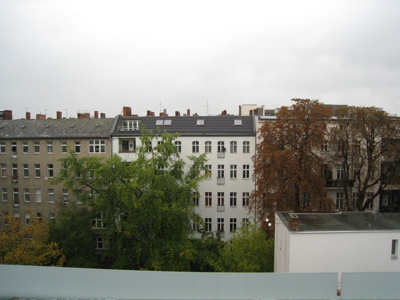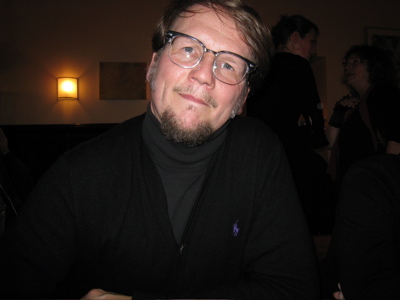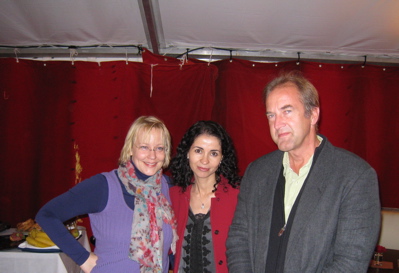News
Khaled Hosseini, the author of book-club favorites The Kite Runner and A Thousand Splendid Suns, has an opinion piece in the Washington Post about John McCain and Sarah Palin’s not-so-veiled accusations that Barack Obama is a terrorist.
Twice last week alone, speakers at McCain-Palin rallies have referred to Sen. Barack Obama, with unveiled scorn, as Barack Hussein Obama. Never mind that this evokes — and brazenly tries to resurrect — the unsavory, cruel days of our past that we thought we had left behind. Never mind that such jeers are deeply offensive to millions of peaceful, law-abiding Muslim Americans who must bear the unveiled charge, made by some supporters of Sen. John McCain and Gov. Sarah Palin, that Obama’s middle name makes him someone to distrust — and, judging by some of the crowd reactions at these rallies, someone to persecute or even kill. As a secular Muslim, I too was offended. Obama’s middle name differs from my last name by only two vowels. Does the McCain-Palin campaign view me as a pariah too? Do McCain and Palin think there’s something wrong with my name?
What has been truly revolting is watching this clip, where a woman at a McCain rally said that Obama was an “Arab” and John McCain retorted, “No Ma’am, he’s a decent family man.” Apparently the two qualifiers are mutually exclusive in his universe.
And the 2008 Nobel Prize in Literature goes to France’s Jean-Marie Le Clezio.
Yesterday’s pile of mail brought with it a copy of Nadeem Aslam’s new novel The Wasted Vigil, which is set in Afghanistan. If the words “set in Afghanistan” make you fear that this is simply a quick, topical, realist book that attempts to cash in on current interest in the region, you may be interested to read Pankaj Mishra’s essay about the novel in the New York Review of Books:
Certainly, if these readers feel that “what contemporary writers perceive and say is in some fundamental way divorced from reality,” it is because few novels in the years preceding 2001 manifested an awareness of the events that have led up to our tormented present.
Given this lack of predecessors Nadeem Aslam’s new novel is an audacious panorama, seeking as it does to encapsulate several national histories as well as the overlapping destinies of individuals caught up in apparently disparate events. A quick survey of its spacious historical terrain—Russian brutality in Afghanistan and Chechnya, Muslim fundamentalism in Pakistan and Afghanistan, the war on terror and the American recourse to torture, and the resurgence of al-Qaeda and the Taliban in post–September 11 Afghanistan—makes us initially suspect that the novel is as noisy and sprawling as it is aggressively topical. Yet Aslam manages to describe the lives of his many characters, and their illusions and despair, with consummate skill.
The article is available to subscribers only, unfortunately. Take a look here.
I am back home from Berlin and naturally have to face a mountain of emails from my six inboxes (don’t ask.) I hope to resume regular posting by tonight.
This is the view from my hotel room the morning after I arrived. It’s been pretty gloomy since. Cloudy, rainy, windy:

I went downstairs to the lobby and here’s the first face that greeted me. I mean, is there no place one can go to anymore to get away from George W. Bush?

All the papers were covering the U.S. financial crisis and the federal bailout. It seemed to be one of only two things people were most eager to talk about upon finding out I had just arrived from the States. The other was Barack Obama.

I went to dinner with a few of the authors and organizers here at the festival and had a very interesting conversation with the Icelandic author Sjon. His latest novel, The Blue Fox, has been translated into English and is out with Telegram Books. He also happens to be an Oscar-nominated songwriter (for Dancer in the Dark.) We talked about Fes and its medina.

The next day I slept in late, to try to get over my cold, then went out briefly to stretch my legs. I ducked into the first bookstore I saw. Lots and lots of literature in translation, as you might expect in a country like Germany, which has such a strong tradition of translation.

And this is just before my reading, with Bernhard Robben, who translated my excerpt into German, and Floriane Danniel, the actress who read it for the audience. Bernhard is the German translator of many contemporary authors, including Ian McEwan and Martin Amis, and he also sometimes introduces authors at festivals.

I don’t even know what time it is now, so I probably should go off to bed. I’ll try to post more pictures soon.





